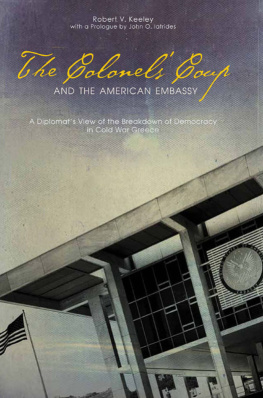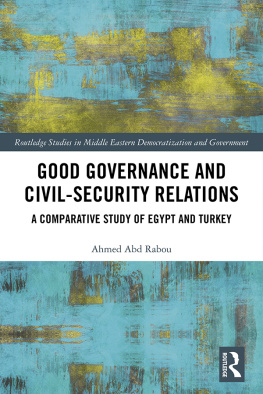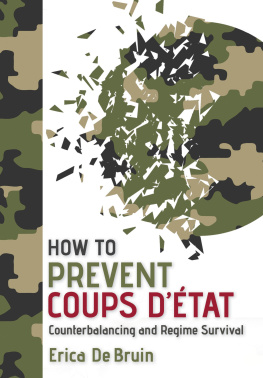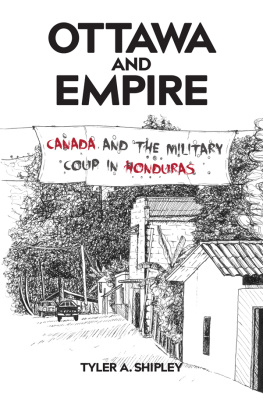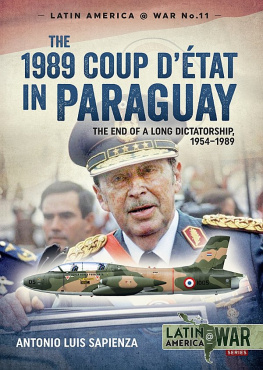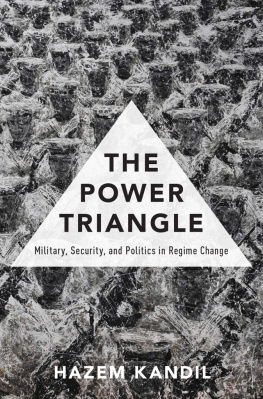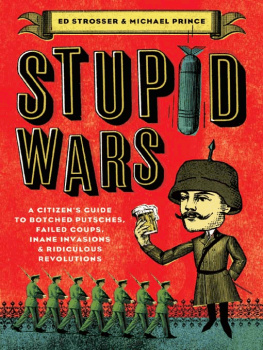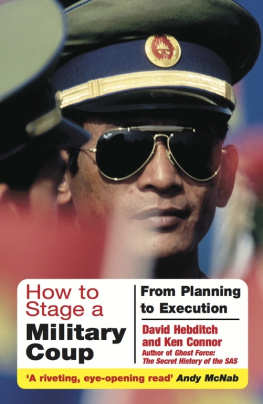Seizing Power
Seizing Power
The Strategic Logic of Military Coups
NAUNIHAL SINGH

To my parents
2014 Johns Hopkins University Press
All rights reserved. Published 2014
Printed in the United States of America on acid-free paper
Johns Hopkins University Press
2715 North Charles Street
Baltimore, Maryland 21218-4363
ISBN 13: 978-1-4214-1336-5
ISBN 10: 1-4214-1336-1
Library of Congress Control Number: 2013949132
A catalog record for this book is available from the British Library.
Special discounts are available for bulk purchases of this book. For more information, please contact Special Sales at 410-516-6936 or specialsales@press.jhu.edu.
Johns Hopkins University Press uses environmentally friendly book materials, including recycled text paper that is composed of at least 30 percent post-consumer waste, whenever possible.
Contents
Figures and Tables
Figures
Tables
Acknowledgments
Thanks are due first to my advisors, the intellectual godfathers of this book, Robert Bates, Jorge Dominguez, Bear Braumoeller, and Samuel Huntington. To this number should be added a fifth, Adam Brandenburger, who served as the unofficial advisor for the game theoretic parts of the argument.
This book would not have been written without the generosity of the retired officers and enlisted men of the Ghanaian armed forces, who taught me almost everything I know about coups. Each footnote should be read as extending fulsome and effusive thanks to the individual cited. In addition, particular thanks should be extended to Eboe Hutchful, K. F. Gyimah-Boadi, General Edwin Sam, Kwesi Pratt, and Kweku Baaku, without whom the oral history I collected would not have been possible.
Funds for the field research in this book came from a Social Science Research Council International Predissertation Fellowship (19992000) and an Institute for the Study of World Politics Doctoral Dissertation Fellowship. Additional support was received for dissertation writing from the John M. Olin Institute and for postgraduate writing from the Kellogg Institute for International Studies at the University of Notre Dame.
Thanks also to the many students who worked with me to collect data on every single coup attempt around the world between 1945 and 2005. This part of the project took four years and required the considerable efforts of Colleen Mallahan, John Busch, Andy Bramsen, Katherine Moran, Shannon Coyne, Daniel Sportiello, Katherine Cessar, Krystin Krause, David Partida, Joe Brutto, Christina ODonnell, Amber Herkey, and Jenna Farmer. That research was generously supported by the Kellogg Institute.
Along the way, I have benefited from the intellectual and personal support of a large number of friends and colleagues. Although they are too numerous to name individually, I want them to know that I am very grateful for all their help.
This book has reached completion largely due to the work of two editors. Suzanne Flinchbaugh at Johns Hopkins University Press believed in this project and championed it through the editorial process, and Jeanne Barker-Nunn helped me cut the fat in the manuscript and find my voice.
And last, thanks beyond all measure to my long-suffering parents, who did so much to support me, even at one point hand-counting all the words in the manuscript. There is no way to thank or appreciate them enough.
Seizing Power
Chapter 1
Introduction
In 1991, in a last-ditch effort to save the Soviet Union from dissolution, a coalition of the top military and civilian leaders in the country tried to seize power from Premier Mikhail Gorbachev. The conspirators included every major official in the state apparatus except the premier himself, including the defense minister, interior minister, KGB chief, the prime minister, the secretary of the central committee, and the chief of the presidents staff (Odom 1998, 310). Despite the overwhelming force the coup makers had at their disposalincluding troops from the regular armed forces, the interior ministry, and the KGBthe coup attempt failed. The party, army, and intelligence services that had so ably defended the Soviets against the Nazi invasion were dismantled, and the USSR was no more.
Almost ten years earlier, on New Years Eve 1981, a young retired flight lieutenant named Jerry Rawlings led a very different military coup, in Ghana. In this attempt, Rawlings and just a handful of men managed to take control of a military of 9,000 and a country of 11,000,000. Unlike the Soviet conspirators, who commanded virtually the entire security apparatus and represented the entire state, Rawlings attacked with only ten men carrying small arms and broader alliances with mainly disgruntled enlisted men and student radicals. He staged his attack against a fairly elected (albeit highly unpopular) democratic regime at a time when Ghanaians were fed up with military intervention. His radio appeals for soldiers and civilians to join his holy war and revolution were met largely with indifference within the military and, for the first time in Ghana, even produced opposition from civilians, who had greeted prior successful coups with public jubilation. Yet, despite all these seeming obstacles, Rawlings prevailed.
Why did the 1991 USSR coup attempt fail and the 1981 Ghana coup attempt succeed? Despite an extensive scholarly literature on civil-military relations in general and coups in particular, the question of the determinants of coup outcomes has been almost entirely ignored. To address this gap, this book offers the first sustained theoretical and empirical treatment of why some coup attempts fail while others succeed. Based on almost 300 hours of interviews with coup participants and an original dataset of all coup attempts around the world between 1950 and 2000, this analysis develops and tests a novel theory of coup dynamics and outcomes.
The Importance of Understanding Coups
There are several reasons for scholars to care about coups, the most significant one being that some coup attempts have been pivotal moments in world history. At stake in the 1991 Soviet coup attempt, for example, was nothing less than the survival of the Soviet Union, a superpower that covered more territory than any other country in the world and which had a nuclear arsenal twice as large as its nearest competitor. Because this coup failed, the USSR was dismembered and the communist party dismantled, conclusively ending the Cold War. Similarly, the success of Portugals 1974 Carnation Revolution led to the democratization of Portugal, the independence of the large Lusophone colonies, and the Third Wave of democratization around the world (Huntington 1991). And if the July 1944 coup attempt against Hitler had succeeded, the war in Europe might have ended very differently, with consequences for both civilians along the Eastern Front and those being slaughtered in the concentration camps. In these and other cases, the trajectory of world politics was determined by the outcome of a single coup attempt.
Even when a coup attempt does not cast a large shadow internationally, it can have a substantial impact on the lives of those who live within the affected countrys borders. Some of the most cruel and venal dictators in the world have taken power via a coup, such as Indonesias President Suharto, who killed between a half-million and a million Indonesians in the first year of his rule (Valentino 2004, 71) and is estimated to have embezzled between 15 and 35 billion dollars during his time in office (Transparency International 2004, 13). Saddam Hussein and Idi Amin were able to retain power (and murder vast numbers of their citizens) because the coup attempts that brought them to power succeeded and numerous subsequent coup attempts against them failed.
Next page

